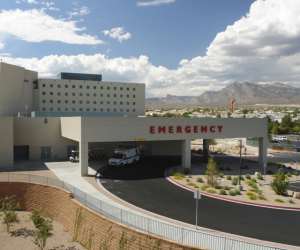
There are many clouds
and some silver linings
for rural providers.
This report originally appeared in the July 2009 issue of DOTmed Business News
As politicians in Washington duke it out over health care, rural and community hospitals are certain to be a focus. The mission of primary care, the need for chronic disease management and caring for the uninsured are priorities for small hospitals and for national health policy. Whatever form reform takes, the nation's rural hospitals are likely to benefit, or at least not be overlooked (
Policy Update: Government Agencies Showing New Focus on Rural Health).
This sector is no stranger to bureaucracy. No matter what regulations Uncle Sam throws at them, small and rural hospitals, particularly the nation's designated Critical Access Hospitals (CAHs) are experts at meeting regulatory requirements. Unlike large hospitals that are paid according to diagnoses, CAHs are reimbursed more fully, providing a cushion in hard times that helps to serve a disadvantaged patient base.
"The PPS or prospective payment hospitals are paid on a DRG or diagnosis related group. CAHs are paid on a cost basis," said Lora Key, CEO of Sabetha Community Hospital, a CAH in Kansas. "Through the year, Medicare will set an interim rate for us. Depending on our patient loads, they may be underpaying us or overpaying us. That Medicare cost report is like a tax return-at the end of the year either we owe them or they owe us."
Sabetha is also doing a balancing act to determine the right blend of technology investments to stretch their dollars.
"We have a mobile MRI that comes once a week," Key said. "It's a great solution for us. I don't think we have enough scans to afford a unit in-house, but to have that capability of the mobile scan is great."
Creative solutions like mobiles are helping, but one pressing need that must be handled in-house is the transition to electronic medical records (EMR), which is already underway at Sabetha. As part of the Great Plains Health Alliance, Sabetha is dovetailing with the network to install the Siemens MedSeries4, a comprehensive hospital information system positioned for community and rural hospitals.
"We are going in stages of implementation, getting staff used to order communications. Right now, the nursing staff is doing their clinical documentation piece. Then, bit by bit, we will build on that," Key said, anticipating fuller EMR implementation in August.
The challenges for rural providers and all hospitals as they dive into EMR, relate to money, systems, and most importantly, people.
